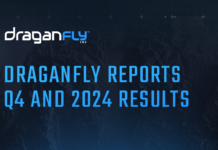France’s Political Landscape Faces Uncertainty Amid Aversion to Coalitions
In a significant turn of events, the political terrain in France is facing a period of profound uncertainty. The reluctance to form coalitions among political leaders has put the newly elected government at risk of an early collapse. This reluctance has become a trending topic on Google searches today, reflecting the widespread interest and concern among the public.
Snap Election and Its Aftermath
The recent snap election in France resulted in three roughly equal political blocs. However, an unwillingness to compromise or form coalitions has created a precarious situation for the new government. The Guardian’s article, "France’s aversion to coalitions means any new government risks early collapse," dated July 9, 2024, highlights the challenges that lie ahead. For more details, readers can refer to the full article here.
The Political Blocs
The election saw the emergence of three main blocs:
- The Centrist Bloc: Led by President Emmanuel Macron’s party, this bloc advocates for progressive reforms, a strong European Union, and economic liberalization.
- The Left-Wing Bloc: Comprising various socialist and green parties, this bloc focuses on social justice, environmental sustainability, and reducing economic inequality.
- The Right-Wing Bloc: Dominated by conservative and nationalist parties, this bloc emphasizes traditional values, stricter immigration policies, and national sovereignty.
The Reluctance to Form Coalitions
France’s political culture has historically been resistant to coalition governments. Unlike countries like Germany or Italy, where coalition governments are common, French political leaders often view coalitions as "unnatural alliances." This aversion is rooted in a desire to maintain ideological purity and avoid compromising core principles.
The Risk of Early Collapse
The refusal to form coalitions has led to a fragile government structure. Without a clear majority, the new government faces the risk of a no-confidence motion. This could lead to another snap election, plunging the country into further political instability.
Historical Context
France’s Fifth Republic, established in 1958, was designed to provide strong executive leadership and avoid the instability of the Fourth Republic, which saw frequent changes in government. However, the current situation echoes some of the challenges of the past, where political fragmentation led to short-lived governments.
Public Reaction
The general public’s reaction has been mixed. While some applaud the leaders’ commitment to their principles, others express concern about the potential for prolonged political instability. Social media platforms are abuzz with discussions, with hashtags like #FrenchPolitics and #CoalitionCrisis trending.
Expert Opinions
Political analysts have weighed in on the situation. Jean-Pierre Raffarin, a former French Prime Minister, stated, "The refusal to form coalitions reflects a deeper issue in our political system. We need to adapt to the changing landscape and find ways to work together for the country’s future."
Potential Solutions
Several potential solutions have been proposed to navigate this crisis:
- Forming a Minority Government: This would involve one bloc leading the government without a clear majority but seeking support from other parties on a case-by-case basis.
- Coalition Agreements: While full coalitions are unlikely, parties could enter into agreements on specific policy areas, allowing for more stable governance.
- Electoral Reform: Some experts suggest that France should consider electoral reforms to encourage coalition-building and reduce political fragmentation.
Looking Ahead
The coming weeks and months will be crucial in determining the future of France’s political landscape. The new government will need to navigate a complex web of competing interests and find ways to govern effectively without a clear majority.
Conclusion
France’s aversion to coalitions presents a significant challenge for the newly elected government. The risk of early collapse looms large, and the country may face another snap election if a stable governing structure cannot be established. As this situation continues to evolve, it will be essential for political leaders to find common ground and work together for the nation’s stability and prosperity.
For more information on this topic, readers can refer to the detailed article by The Guardian here.
This news has captured the attention of many, making it one of the most searched topics on Google today. As France navigates this complex political landscape, the world watches closely, hoping for a resolution that will ensure stability and progress for one of Europe’s most influential nations.


































